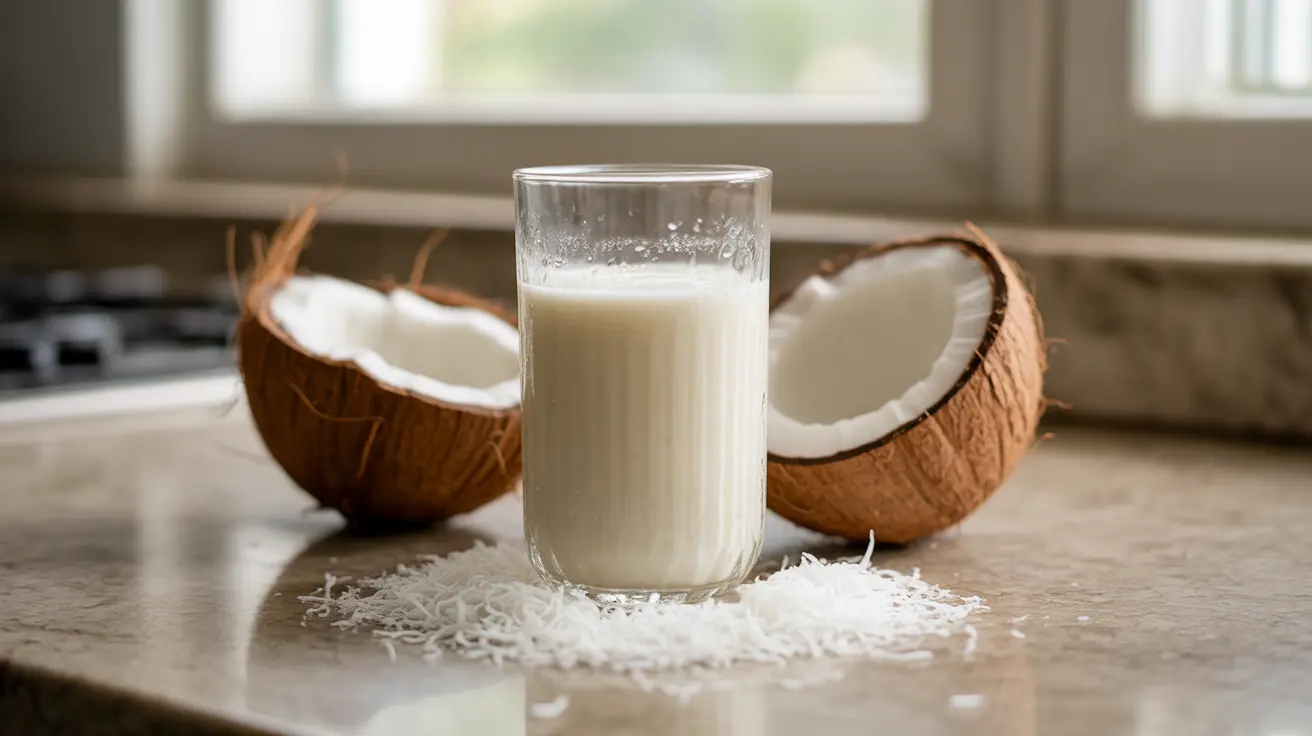As more people seek alternatives to traditional dairy products, coconut milk has emerged as a popular plant-based option. Whether you're lactose intolerant, following a vegan diet, or simply curious about dairy alternatives, understanding coconut milk's properties and uses is essential for making informed dietary choices.
In this comprehensive guide, we'll explore everything you need to know about coconut milk, from its dairy-free status to its nutritional profile and practical applications in cooking.
What Is Coconut Milk and How Is It Made?
Coconut milk is a plant-based beverage made by extracting the liquid from grated mature coconut meat. The process involves blending the coconut meat with water and straining the mixture to produce a creamy, white liquid that resembles dairy milk in appearance but offers distinctly different nutritional properties.
Nutritional Profile of Coconut Milk
Coconut milk's nutritional composition differs significantly from dairy milk. It's naturally rich in healthy fats, particularly medium-chain triglycerides (MCTs), but contains less protein than cow's milk. A typical cup (240ml) of full-fat canned coconut milk contains:
- Calories: 445
- Fat: 48g
- Protein: 4.6g
- Carbohydrates: 6g
- Fiber: 2g
- Iron: 7% of Daily Value
- Magnesium: 22% of Daily Value
Different Types of Coconut Milk Products
Coconut milk comes in several forms, each suited for different uses:
- Canned full-fat coconut milk
- Light coconut milk
- Coconut milk beverage (found in cartons)
- Coconut cream
Benefits of Choosing Coconut Milk
Coconut milk offers several advantages that make it an excellent choice for many people:
- Naturally dairy-free and lactose-free
- Rich in beneficial MCTs
- Versatile in cooking applications
- Contains no common allergens found in dairy
- Suitable for vegan diets
- Often fortified with vitamins and minerals
Cooking with Coconut Milk
Coconut milk's versatility makes it an excellent ingredient in both sweet and savory dishes. It can be used in:
- Curries and soups
- Smoothies and shakes
- Baked goods
- Coffee and tea
- Breakfast cereals
- Dairy-free ice cream
Frequently Asked Questions
Is coconut milk completely dairy-free and safe for people with lactose intolerance?
Yes, coconut milk is completely dairy-free and safe for people with lactose intolerance. It contains no milk proteins or lactose, making it a suitable alternative for those who cannot consume dairy products.
How does coconut milk compare nutritionally to cow's milk in terms of calories, protein, and fat?
Coconut milk typically contains more calories and fat but less protein than cow's milk. While cow's milk provides about 8g of protein per cup, coconut milk contains only 0.5-2g per cup. However, coconut milk is rich in healthy MCTs and contains no cholesterol.
Can people with milk allergies or dairy sensitivities use coconut milk as a substitute?
Yes, people with milk allergies or dairy sensitivities can safely use coconut milk as a substitute. Since it contains no dairy proteins, it won't trigger milk-related allergic reactions. However, anyone with a coconut allergy should avoid it.
Are there any allergy risks associated with consuming coconut milk?
While coconut allergies are relatively rare, they do exist. People with tree nut allergies should consult their healthcare provider before consuming coconut products, although coconut is technically a fruit, not a tree nut.
What are common uses for coconut milk in cooking and how can it replace dairy milk?
Coconut milk can replace dairy milk in most recipes, though the substitution may affect flavor and texture. It works particularly well in curries, soups, smoothies, and baked goods. For drinking, specially formulated coconut milk beverages are available that more closely mirror the consistency of dairy milk.




